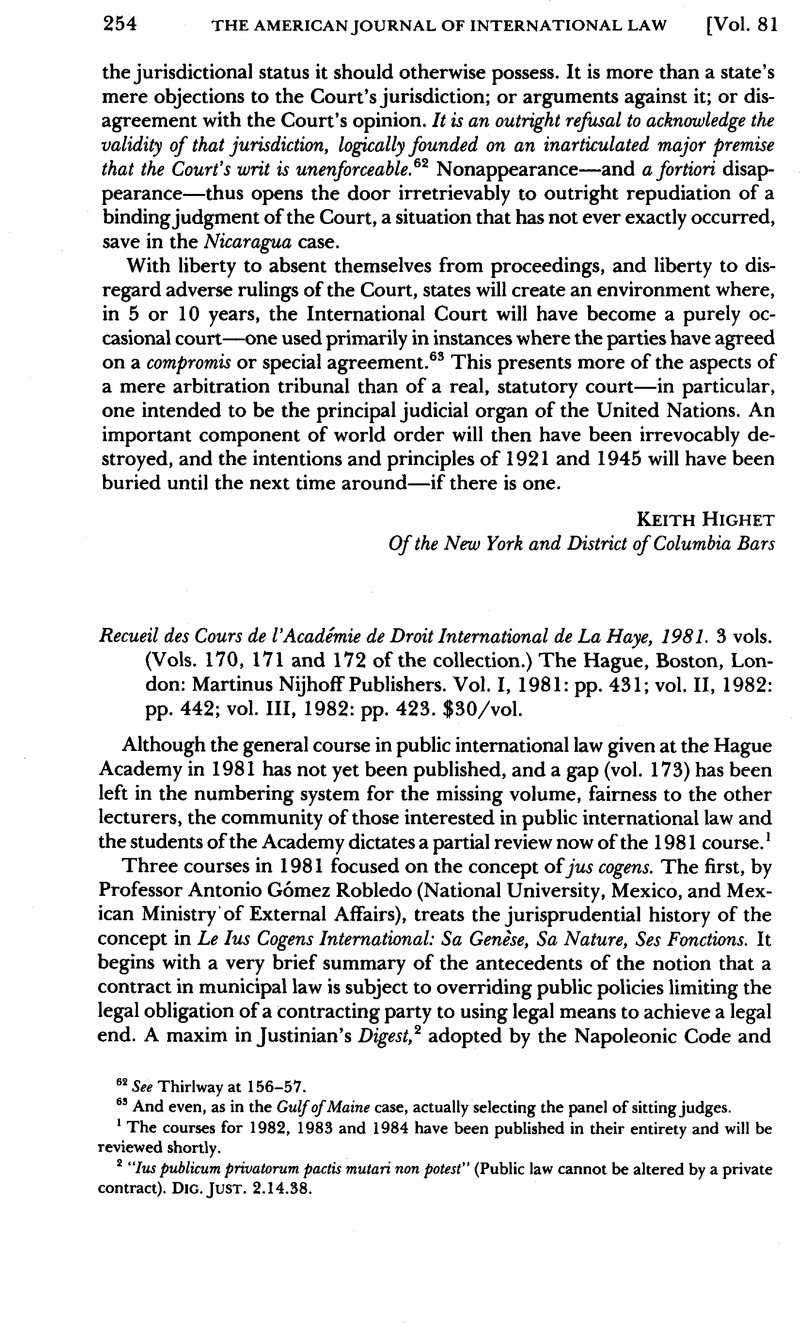No CrossRef data available.
Published online by Cambridge University Press: 27 February 2017

1 The courses for 1982, 1983 and 1984 have been published in their entirety and will be reviewed shortly.
2 “Ius publicum privatorum paclis mutari non potest” (Public law cannot be altered by a private contract). Dig. Just. 2.14.38.
3 Only Article 2(4) is mentioned as containing that prohibition. There is no explanation as to why Article 2(3), which is the provision of the Charter that would seem much more appropriate to limit the use of force in disputes regarding authority over territory or political independence, is ignored.
4 This ingenious way to use the phrase jus cogens in the literature of public international law presumes that there is a purpose to finding such a way. But the issue has never been what the legal result is of using the phrase, but what conditions must exist to justify that use. To the extent the proposal makes sense, therefore, it is circular in finding the conditions to justify the use to be those that flow from its use. The construction proposed by Gómez, fully acknowledging Michel Virally as an earlier analyst making the same proposal, seems to serve no other purpose than to justify using the term, and since it fails to do that it should, on the basis of Occam’s razor, be rejected. But this leads to a realm of discussion not appropriate for a review.
5 [1980] 2 Y.B. Int’l L. Comm’n, pt. 2 at 30, UN Doc. A/CN.4/SER.A/1980/Add.1, reprinted in 18 ILM 1568, 1573 (1979).
6 Charney, The Delimitation of Lateral Seaward Boundaries Between States in a Domestic Context, 75 AJIL 28 (1981).
7 Cf. Hambro, Some Notes on Parliamentary Diplomacy, in Transnational Law in a Changing Society 280, 294–97 (W. Friedmann, L. Henkin & O. Lissitzyn eds. 1972).